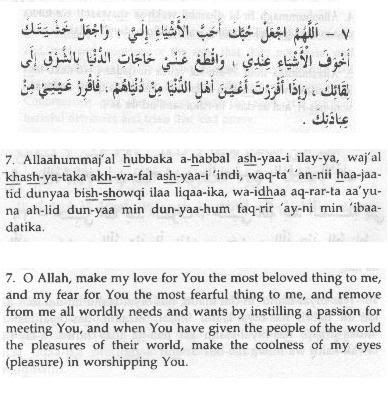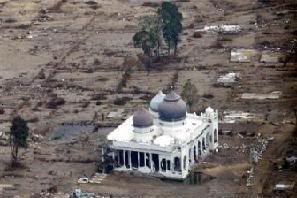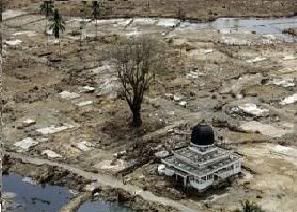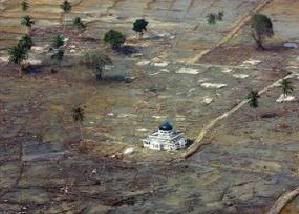Sha'ban: Merits, Do's, and Dont'sBy Mufti Taqi Usmani
- The Night of Bara'ah
- What Should be Done in this Night?
- What Should Not be Done in This Night
- Fast of the 15th Sha'ban
Sha'ban is one of the meritorious months for which we find some particular instructions
in the Sunnah of Prophet Muhammad, Sall-Allahu alayhi wa sallam. It is reported in the
authentic ahadith that Prophet Muhammad, Sall-Allahu alayhi wa sallam, used to fast
most of the month in Sha'ban. These fasts were not obligatory on him but Sha'ban is the
month immediately preceding the month of Ramadan. Therefore, some preparatory measures are
suggested by Prophet Muhammad, Sall-Allahu alayhi wa sallam. Some of these are given
below:
1. The blessed companion Anas, Radi-Allahu anhu, reports that Prophet Muhammad,
Sall-Allahu alayhi wa sallam, was asked, "Which fast is the most meritorious after
the fasts of Ramadan?" He replied, "Fasts of Shaban in honor of Ramadan."
2. The blessed companion Usama ibn Zaid, Radi-Allahu anhu, reports that he asked
Prophet Muhammad, Sall-Allahu alayhi wa sallam: "Messenger of Allah, I have
seen you fasting in the month of Sha'ban so frequently that I have never seen you fasting
in any other month." Prophet Muhammad, Sall-Allahu alayhi wa sallam, replied:
"That (Sha'ban) is a month between Rajab and Ramadan which is neglected by many
people. And it is a month in which an account of the deeds (of human beings) is presented
before the Lord of the universe, so, I wish that my deeds be presented at a time when I am
in a state of fasting."
3. Ummul Mu'mineen 'Aishah, Radi-Allahu anha, says, "Prophet Muhammad, Sall-Allahu
alayhi wa sallam, used to fast the whole of Sha'ban. I said to him, 'Messenger of Allah,
is Sha'ban your most favorite month for fasting?' He said, 'In this month Allah prescribes
the list of the persons dying this year. Therefore, I like that my death comes when I am
in a state of fasting."
4. In another Tradition she says, "Prophet Muhammad, Sall-Allahu alayhi wa sallam,
would sometimes begin to fast continuously until we thought he would not stop fasting, and
sometimes he used to stop fasting until we thought he would never fast. I never saw the
Messenger of Allah, Sall-Allahu alayhi wa sallam, fasting a complete month, except
the month of Ramadan, and I have never seen him fasting in a month more frequently than he
did in Sha'ban."
5. In another report she says, "I never saw the Messenger of Allah, Sall-Allahu
alayhi wa sallam, fasting in a month so profusely as he did in the month of Sha'ban. He
used to fast in that month leaving only a few days, rather, he used to fast almost the
whole of the month."
6. Ummul-Mu'mineen Umm Salamah, Radi-Allahu anha, says: "I have never seen the
Messenger of Allah fasting for two months continuously except in the months of Sha'ban and
Ramadan."
These reports indicate that fasting in the month of Sha'ban, though not obligatory, is
so meritorious that Prophet Muhammad, Sall-Allahu alayhi wa sallam, did not like to miss
it.
But it should be kept in mind that the fasts of Sha'ban are for those persons only who
are capable of keeping them without causing deficiency in the obligatory fasts of Ramadan.
Therefore, if one fears that after fasting in Sha'ban, he will lose strength or freshness
for the fasts of Ramadan and will not be able to fast in it with freshness, he should not
fast in Sha'ban, because the fasts of Ramadan, being obligatory, are more important than
the optional fasts of Sha'ban. That is why Prophet Muhammad, Sall-Allahu alayhi wa sallam,
himself has forbidden the Muslims from fasting one or two days immediately before the
commencement of Ramadan. The blessed Companion Abu Hurairah, Radi-Allahu anhu, reports
Prophet Muhammad, Sall-Allahu alayhi wa sallam, to have said, "Do not fast after the
first half of the month of Sha'ban is gone."
According to another report Prophet Muhammad, Sall-Allahu alayhi wa sallam has said:
"Do not precede the month of Ramadan with one or two fasts."
The essence of the above-quoted ahadith is that Prophet Muhammad, Sall-Allahu
alayhi wa sallam, himself used to fast most of the month of Sha'ban, because he had no
fear of developing weakness or weariness before the commencement of Ramadan. As for
others, he ordered them not to fast after the 15
of Sha'ban for the fear that they would lose their strength and freshness before Ramadan
starts, and would not be able to welcome the month of Ramadan with enthusiasm.
Back to Top
The Night of Bara'ah
Another significant feature of the month of Sha'ban is that it consists of a night
which is termed in Shariah as "Laylatul-bara'ah" (The night of freedom
from Fire). This is the night occurring between 14th and 15th day of Sha'ban. There are certain traditions of Prophet Muhammad,
Sall-Allahu alayhi wa sallam, to prove that it is a meritorious night in which the people
of the earth are attended by special Divine mercy. Some of these traditions are quoted as
follows:
1. Ummul-Mu'mineen 'Aishah, Radi-Allahu anha, is reported to have said,
"Once Prophet Muhammad, Sall-Allahu alayhi wa sallam, performed the Salah of the
night (Tahajjud) and made a very long Sajdah until I feared that he had passed away. When
I saw this, I rose (from my bed) and moved his thumb (to ascertain whether he is alive).
The thumb moved, and I returned (to my place). Then I heard him saying in Sajdah: 'I seek
refuge of Your forgiveness from Your punishment, and I seek refuge of Your pleasure from
Your annoyance, and I seek Your refuge from Yourself. I cannot praise You as fully as You
deserve. You are exactly as You have defined Yourself.' Thereafter, when he raised his
head from Sajdah and finished his salah, he said to me: 'Aishah, did you
think that the Prophet has betrayed you?' I said, 'No, O Prophet of Allah, but I was
afraid that your soul has been taken away because your Sajdah was very long.' He
asked me, 'Do you know which night is this?' I said, 'Allah and His Messenger know best.'
He said, 'This is the night of the half of Sha'ban. Allah Almighty looks upon His slaves
in this night and forgives those who seek forgiveness and bestows His mercy upon those who
pray for mercy but keeps those who have malice (against a Muslim) as they were before,
(and does not forgive them unless they relieve themselves from malice).'"
2. In another Tradition Sayyidah' Aishah, Radi-Allahu anha, has reported that Prophet
Muhammad, Sall-Allahu alayhi wa sallam, has said, "Allah Almighty descends (in a
manner He best knows it) in the night occurring in the middle of Sha'ban and forgives a
large number of people more than the number of the fibers on the sheep of the tribe,
Kalb."
Kalb was a big tribe the members of which had a very large number of sheep. Therefore,
the last sentence of the hadith indicates the big number of the people who are
forgiven in this night by Allah Almighty.
3. In yet another Tradition, she has reported Prophet Muhammad, Sall-Allahu alayhi wa
sallam, to have said, "This is the middle Night of Sha'ban. Allah frees in it a large
number of the people from Fire, more than the number of the hair growing on the sheep of
the tribe, Kalb. But He does not even look at a person who associates partners with Allah,
or at a person who nourishes malice in his heart (against someone), or at a person who
cuts off the ties of kinship, or at a man who leaves his clothes extending beyond his
ankles (as a sign of pride), or at a person who disobeys his parents, or at a person who
has a habit of drinking wine."
4. Sayyidna Mu'adh ibn Jabal, Radi-Allahu anhu, reports that Prophet Muhammad,
Sall-Allahu alayhi wa sallam, has said: "Allah Almighty looks upon all those created
by Him in the middle Night of Sha'ban and forgives all those created by Him, except the
one who associates partners with Him or the one who has malice in his heart (against a
Muslim)".
Although the chain of narrators of some of these traditions suffers with some minor
technical defects, yet when all these traditions are combined together, it becomes clear
that this night has some well founded merits, and observing this night as a sacred night
is not a baseless concoction as envisaged by some modern scholars who, on the basis of
these minor defects, have totally rejected to give any special importance to this night.
In fact, some of these traditions have been held by some scholars of hadith as
authentic and the defects in the chain of some others have been treated by them as minor
technical defects which, according to the science of hadith, are curable by the
variety of their ways of narration. That is why the elders of the ummah have
constantly been observing this night as a night of special merits and have been spending
it in worship and prayers.
Back to Top
What Should be Done in this Night?
In order to observe the Night of Bara'ah, one should remain awakened in this night as
much as he can. If someone has better opportunities, he should spend the whole night in
worship and prayer. However, if one cannot do so for one reason or another, he can select
a considerable portion of the night, preferably of the second half of it for this purpose,
and should perform the following acts of worship:
(a) Salah. Salah is the most preferable act to be performed in this
night. There is no particular number of Rak'at but preferably it should not be less
than eight. It is also advisable that each part of the Salah like qiyam, rukoo' and
sajdah should be longer than normal. The longest surahs of the Holy Qur'an one
remembers by heart should be recited in the Salah of this night. If someone does
not remember the long surahs, he can also recite several short surahs in one rak'ah.
(b) Tilawa. The recitation of the Holy Qur'an is another form of worship, very
beneficent in this night. After performing Salah, or at any other time, one should
recite as much of the Holy Qur'an as he can.
(c) Dhikr. One should also perform dhikr (recitation of the name of
Allah) in this night. Particularly the following dhikr is very useful:
One should recite Salah (durood) on Prophet Muhammad, Sall-Allahu alayhi wa
sallam, as many times as he can. The dhikr can also be recited while walking, lying
on bed and during other hours of work or leisure.
(d) Dua. The best benefit one can draw from the blessings of this night is
prayers and supplications. It is hoped that all the prayers in this night will be accepted
by our Lord, insha-Allah. Prayer itself is an 'Ibadah, and Allah Almighty
gives reward on each prayer along with the fulfillment of the supplicator's need. Even if
the purpose prayed for is not achieved, one cannot be deprived of the reward of the prayer
which is sometimes more precious than the mundane benefits one strives for. The prayers
and supplications also strengthen one's relation with Allah Almighty, which is the main
purpose of all kinds and forms of worship.
One can pray for whatever purpose he wishes. But the best supplications are the ones
made by Prophet Muhammad, Sall-Allahu alayhi wa sallam. These are so comprehensive and
all-encompassing prayers that all the human needs, of this world and the Hereafter, are
fully covered in the eloquent expressions used in them. Actually, most of the prophetic
prayers are so profound that human imagination can hardly match their greatness.
Several books in various languages are available which provide these prophetic prayers,
and one should pray to Allah Almighty in accordance with them, whether by reciting their
original Arabic text or by rendering their sense in one's own language.
(e) There are some people who cannot perform any additional Salah or recitations
for any reason, like illness or weakness or being engaged in some other necessary
activities. Such people also should not deprive themselves completely of the blessings of
this night. They should observe the following acts:
(i) To perform the Salah of Maghrib, 'Isha' and Fajr with Jama'ah in
the mosque, or in their homes in case of their being sick.
(ii) They should keep reciting the dhikr, particularly the one mentioned in para
(c) above, in whatever condition they are until they sleep.
(iii) They should pray to Allah for their forgiveness and for their other objectives.
One can do so even when he is in his bed.
(f) The women during their periods cannot perform salah, nor can they recite the
Qur'an, but they can recite any dhikr, tasbeeh, durood sharif and can pray to Allah
for whatever purpose they like in whatever language they wish. They can also recite the
Arabic prayers mentioned in the Qur'an or in the hadith with the intention of
supplication (and not with the intention of recitation).
(g) According to a hadith, which is relatively less authentic, Prophet Muhammad,
Sall-Allahu alayhi wa sallam, went in this night to the graveyard of Baqi' where he
prayed for the Muslims buried there. On this basis, some of the fuqaha hold it as mustahabb
(advisable) in this night to go to the graveyard of the Muslims and recite Fatihah or
any other part of the Qur'an, and pray for the dead. But this act is neither obligatory
nor should it be performed as regularly as an obligatory act.
Back to Top
What Should Not be Done in This Night
1. As mentioned earlier, the Night of Bara'ah is a night in which special
blessings are directed towards the Muslims. Therefore, this night should be spent in total
submission to Allah Almighty, and one should refrain from all those activities, which may
displease Allah. Although it is always incumbent upon every Muslim to abstain from sins,
yet this abstinence becomes all the more necessary in such nights, because committing sins
in this night will amount to responding to divine blessings with disobedience and felony.
Such an arrogant attitude can invite nothing but the wrath of Allah. Therefore, one should
strictly abstain from all the sins, particularly from those mentioned in the Hadith No. 3
quoted earlier in this article, because these sins make one devoid of the blessings of
this night.
2. In this night some people indulge in some activities which they regard as necessary
for the celebration of the Night of Bara'ah, like cooking some special type of meal, or
illuminating houses or mosques, or improvised structures. All such activities are not only
baseless and innovated in the later days by ignorant people, but in some cases they are
pure imitation of some rituals performed by non-Muslim communities. Such imitation in
itself is a sin; performing it in a blessed night like the Night of Bara'ah makes it
worse. Muslims should strictly abstain from all such activities.
3. Some people spend this night in holding religious meetings and delivering long
speeches. Such activities are also not advisable, because these acts can easily be
performed in other nights. This night requires one to devote himself for the pure acts of
worship only.
4. The acts of worship like Salah, recitation of the Qur'an and dhikr should
be performed in this night individually, not collectively. The Nafl Salah should
not be performed in Jama'ah, nor should the Muslims arrange gatherings in the
mosques in order to celebrate the night in a collective manner.
On the contrary, this night is meant for worshipping Allah in solitude. It is the time
to enjoy the direct contact with the Lord of the Universe, and to devote one's attention
to Him and Him alone. These are the precious hours of the night in which nobody should
intervene between one and his Lord, and one should turn to Allah with total concentration,
not disturbed or intermitted by any one else.
That is why Prophet Muhammad, Sall-Allahu alayhi wa sallam, observed the acts of
worship in this night in total seclusion, not accompanied by anyone, not even by his
favorite life companion Sayyidah 'Aishah, Radi-Allahu anha, and that is why all forms of
the optional worship (Nafl Ibadah), are advised by him to be done in individual,
not in collective manner.
Back to Top
Fast of the 15th Sha'ban
On the day immediately following the Night of Bara'ah, i.e. the 15th of Sha'ban, it is mustahabb
(advisable) to keep fast. Prophet Muhammad, Sall-Allahu alayhi wa sallam, is reported
to have recommended this fast emphatically. Although the scholars of hadith have
some doubts in the authenticity of this report, yet it is mentioned earlier that the fasts
of the first half of Sha'ban have special merits and Prophet Muhammad, Sall-Allahu alayhi
wa sallam, used to fast most of the days in Sha'ban. Moreover, a large number of the
elders (salaf) of the Ummah have been observing the fast of the 15th of Sha'ban. This constant practice indicates that they have
accepted the relevant hadith as authentic.
Therefore, it is advisable to fast the 15th of Sha'ban as an optional (nafl)
fast. One can also keep a fast of qada on this day and it is hoped that he can also
benefit from the merits of this fast.
Back to Top
Source: http://www.albalagh.net/general/shaban.shtml









